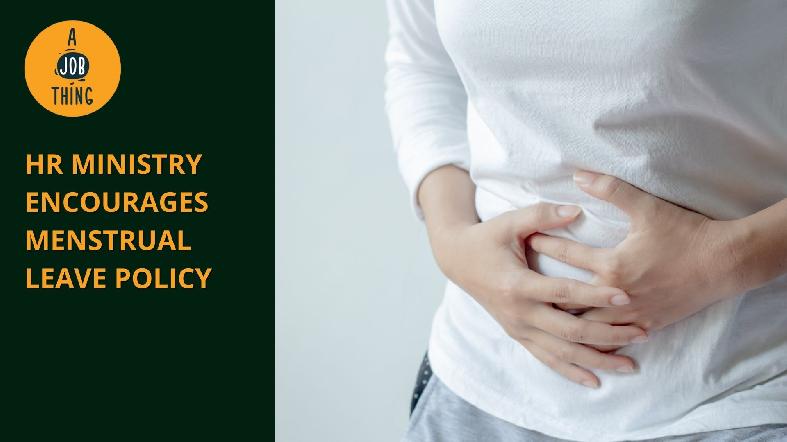
HR Ministry Encourages Companies to Adopt Menstrual Leave Policy
Are You Hiring?
Find candidates in 72 Hours with 5+ million talents in Maukerja Malaysia & Ricebowl using Job Ads.
Hire NowAccording to the Human Resources Ministry, government-linked corporations (GLCs) and private firms in Malaysia are encouraged to introduce menstrual leave policy without waiting for the government to legislate it.
The HR ministry said establishments with collective agreements should also begin negotiations with their trade unions to include such policy in their collective agreements.
However, the ministry stated that in-depth research would be required to determine the merits and cons of legislating this topic, taking into account the proper processes that must be put in place to efficiently implement this policy at the firm level to avoid any misuse or problems.
It said that, before making any judgments, the ministry should consult with companies and labour unions. Discussions with other relevant ministries would also be required.
Could it harm women's job opportunities?
The government was replying to inquiries about whether Malaysia, like Spain and other nations such as Indonesia, Japan, and South Korea, could implement a national menstrual leave policy.
The ministry stated that, while enacting a law to regulate menstrual leave entitlement in the private sector may be viewed as a progressive move by the government to improve women's rights at work, authorities must be wary if this could hurt women's employment opportunities.
The Human Resources Ministry is closely monitoring the ongoing debate and developments in numerous nations over the passage of legislation to regulate menstrual leave policies for female employees in the private sector.
Several countries are known to have some form of legislation to control this topic, either as paid or unpaid leave ranging from one to two days per month. Menstrual leave is implemented on a company-by-company basis in the majority of other countries.
The ministry said that it is also aware of the results of a recent online poll that found 87% of 1,177 respondents favoured the introduction of a menstrual leave policy in Malaysia.
While the ministry respects the results of this poll, it said that it must not rush to make this a part of the law.
As a result, the ministry said it will need to conduct an in-depth investigation.
The ministry also stated that, for the time being, pending the results of further research and consultations with stakeholders, it encourages businesses to implement menstrual leave policy on their own rather than waiting for the government to codify it.
Support for menstrual health
Meanwhile, Women, Family, and Community Development Minister Datuk Seri Rina Mohd Harun stated that the ministry supports any programme that promotes the welfare and wellbeing of women.
However, she added that the issue of menstrual leave requires policy reforms and greater debate among stakeholders, as well as an evaluation of the Public Service Department and Human Resources Ministry.
She went on to say that the Women's Ministry's National Reproductive and Social Health Policy and Action Plan focuses on sexual and reproductive health education (SRHE) to raise awareness among individuals, families, and communities about the importance of reproductive health and social education.
She said that menstrual health is one of the components of SRHE education, and this policy's programmes indirectly assist menstrual health in the community.
The National Population and Family Development Board's (LPPKN) #HygieneKit aids B40 girls affected by the epidemic by giving basic hygiene goods and disseminating knowledge on cleanliness, reproductive health, and community wellbeing, including menstrual health.
It also aims to raise community knowledge about sexual and reproductive health, particularly among adolescent girls.
Malaysian experts and working women have lately urged the government to consider establishing a national menstrual leave policy.
Source: NST

